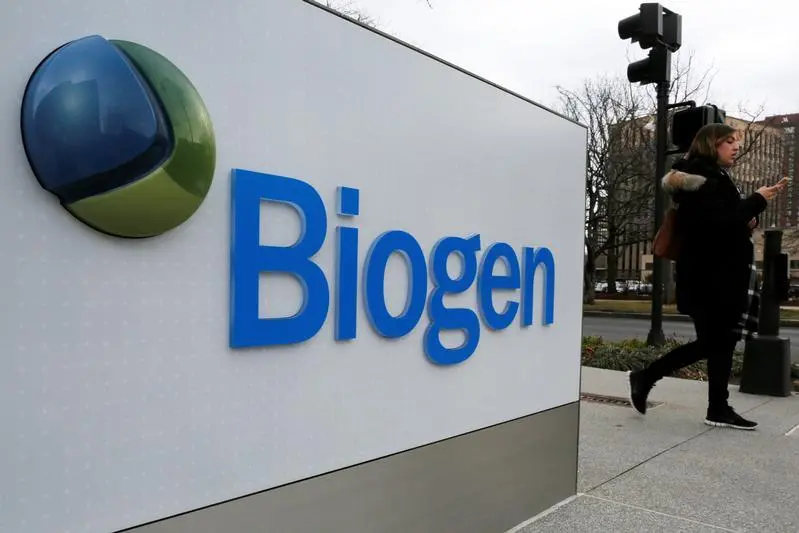PHOTO
NEW YORK - Biogen’s fortunes look like they’re being reanimated. The biotech giant’s value jumped as much as 40% in early trading on Tuesday after the company said a possible treatment for Alzheimer’s disease that it had left for dead in March is now showing signs of life. The company run by Michel Vounatsos will now seek regulatory approval for the drug. There may be a trick hidden in the $16 billion treat Biogen just handed to investors, though.
If Biogen successfully resurrects aducanumab, it would create one of the biggest-selling drugs of all time. Over 5 million Americans suffer from the disease, and the cost of caring for them means even a marginally effective drug would bear a steep price tag. Annual sales could reach $12 billion according to Goldman Sachs research in 2017. This explains why Biogen shares exploded higher.
What happened, according to Biogen, is the analysis was rerun with a complete dataset after the initial announcement in March. In one of the two late-stage trials, statistically significant improvements in measures of cognition and function were shown.
Yet the other trial, designed to be identical, didn’t pass muster. That might be because fewer patients ended up receiving the high dose. Success in one trial may also just be chance, and history is not on Biogen’s side. Over 99% of pharmaceuticals tested against the disease failed between 2002 and 2012, according to a 2014 study in Alzheimer’s Research & Therapy, and the results have been miserable since. This indicates scientists have a relatively poor understanding of what causes Alzheimer’s and how to cure it.
That leaves matter in the hands of the U.S. Food and Drug Administration. Given the tremendous need for any sort of treatment, the watchdog may view a therapy with mixed signals of efficacy better than none. Yet doctors generally believe in the tenet “first, do no harm,” and assume nearly all therapies cause at least some adverse effects. And demands for further proof will prolong the time for Biogen’s drug to hit the market, assuming no fatal flaws are found.
CONTEXT NEWS
- Biogen and Eisai said on Oct. 22 that they plan to file for U.S. Food and Drug Administration approval for aducanumab, their treatment for early Alzheimer’s disease, after a new analysis showed positive results. The companies announced in March that they were discontinuing two global Phase-3 trials after an analysis showed the drug was unlikely to work.
- More data became available after the decision, with one of two identically designed trials with the larger dataset showing statistically significant improvements in measures of cognition and function.
- Biogen says the difference can mostly be accounted for by having more patients on the high dose of the drug in the successful trial.
- Biogen’s stock jumped by more than 40% in early trading on the news before giving up some gains.
(Editing by Antony Currie and Amanda Gomez)
© Reuters News 2019





















